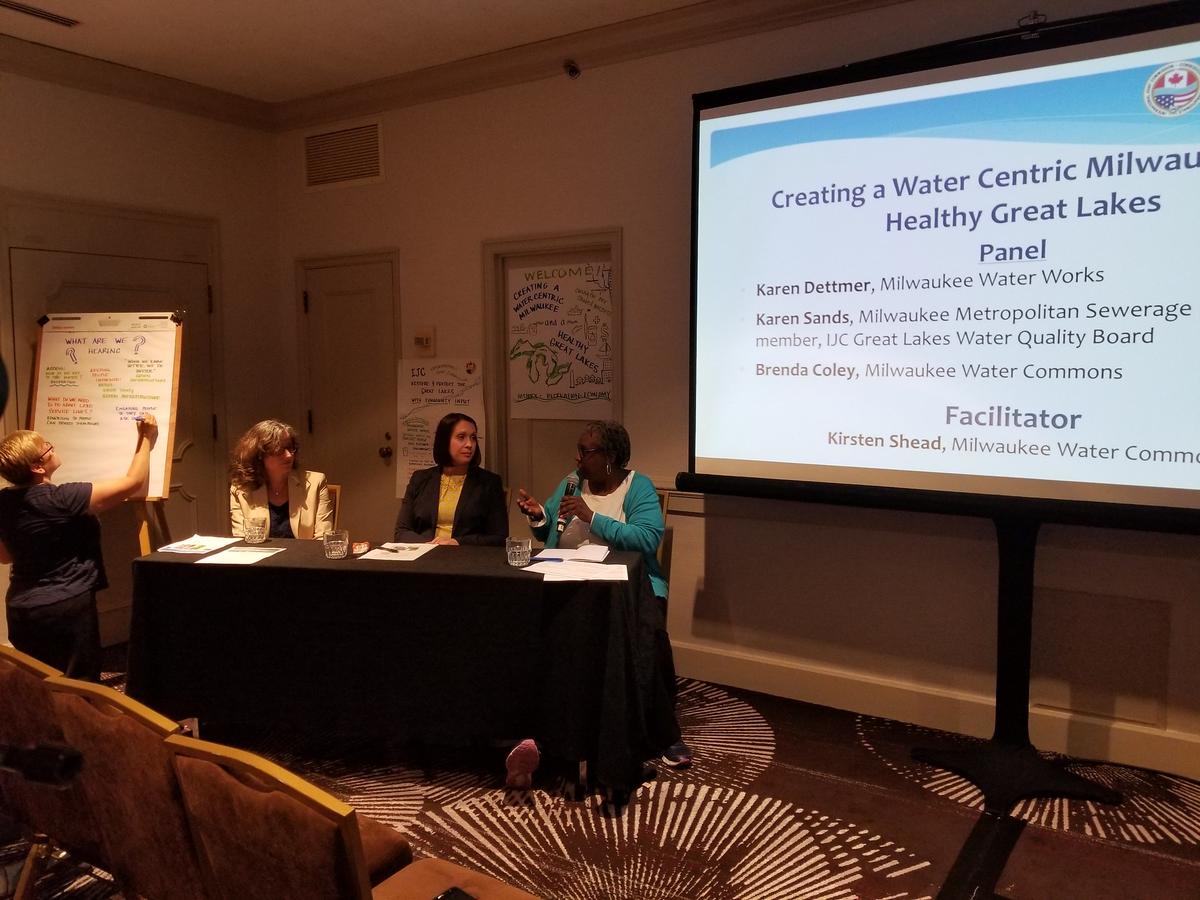U.S.-Canadian Commission: Community Engagement Vital To Great Lakes Future
Jun 22, 2019 12:33PM ● By Editor
By Susan Bence of WUWM Radio - June 21, 2019
The International Joint Commission, or IJC, may not be an organization you’ve heard much about, but it’s got an important job. It keeps track of how well the United States and Canada are doing in protecting the Great Lakes.
The IJC was created over a century ago to avoid conflict over all waters shared by the United States and Canada.
Pierre Béland chairs the Canadian arm of the commission and calls the challenge of stewarding the Great Lakes: "The biggest environmental rehabilitation project in the world. No one has ever attempted to rehabilitate 20% of the freshwater on earth over such a large area and jurisdictions. It’s just immense."
Jane Corwin is Béland’s U.S. counterpart on the commission. She says it’s not only part of the IJC’s job to act as watchdog on behalf of the Great Lakes, but also on behalf of the people who live around them.
And, that means meeting as many residents as possible.
"It’s clear from the meetings we’re attending this week that there’s a long way to go and there’s much more work to be done," Corwin says," but the thing that I really appreciated when we met with the public, the general public is realizing that they can impact water quality and they’re willing to do it."

On Tuesday evening in downtown Milwaukee, residents came out to share their concerns. Brandon Gross urged the commission to support teaching Great Lakes residents — starting with the very young — about the Great Lakes and the importance of protecting them.
"If we want a water-centric city, do you agree we should have water-educated voters? Two, what components of water education would be most important to have more well-rounded, water-minded voters? And number three, what should we do to advocate for to get toward that goal?,” Gross asked.
Ann Batiza stood up on behalf of the League of Women Voters of Milwaukee County. It’s concerned about the future of the Great Lakes Compact that governs withdrawals of water from the lakes, and she wants the IJC to do something.
"The compact allows for strictly limited diversions to counties and communities straddling the Great Lakes divide. These strict limits have been compromised. The IJC could and should speak out in support of strict enforcement of the Great Lakes Compact in the interest of the longterm viability of the Great Lakes region," Batiza said.
Another resident Christine Fleming wondered how she can make a difference. "It’s sort of a deep well to figure out what an individual citizens can actually do ... Is there an area or a combination of the reports from the IJC and organizations in Milwaukee that have recommendations for what we can do?,” Fleming said.
More than 250 people showed up at gatherings hosted by the IJC in Milwaukee.
Commissioner Béland says to solve the Great Lake's challenges, the community must be engaged.
"Suppose you have science and you have the knowledge, but you don’t tell anyone, it’s useless ... You have to share it in a way that is meaningful to the people. And from the other end, you have to have community that buys into all of this to tell scientists and legislators this is what we want,"Béland said.
Milwaukee was the International Joint Commission’s first stop of what’s it’s calling the Step In And Speak Out for the Great Lakes tour. Next month, commissioners will visit the other side of Lake Michigan in Traverse City. People can also contact the IJC directly to share comments.
To read the original article and her an audio report of this story, follow this link to the WUWM website. https://www.wuwm.com/post/us-canadian-commission-community-engagement-vital-great-lakes-future#strea...

